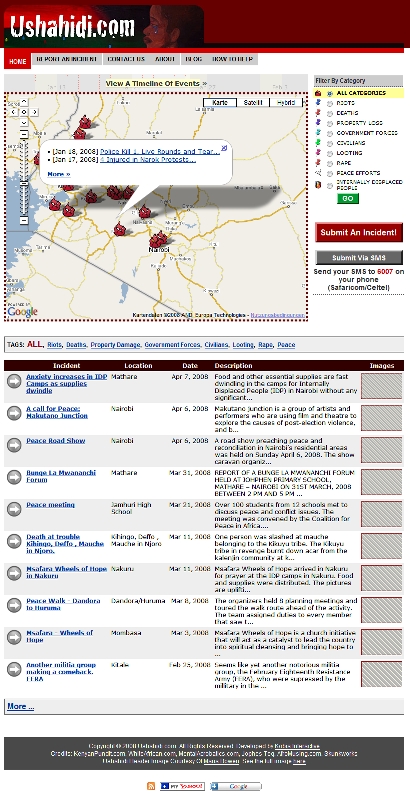Cognitive Mapping
Nesse Carnet são inúmeros os projetos apresentando construção colaborativa, artística, política de mapas. A construção de mapas, tenho insistido, é um importante elemento para a compreensão dos processos de espacialização e para a re-apropriação dos espaços urbanos. Lembrem-se que mapas eram sempre produzidos por técnicos e com uma forte conotação política e ideológica de conquista de territórios e de manunteção de suas fronteiras. Hoje cartógrafos e geógrafos são unânimes ao afirmar que estamos vendo uma profusão de mapas sem precedente na história.
Interessante ver como essa apropriação, esse processo de “Cognitive Mappinng” (Tolman, 1948, Jameson), é uma forma espacial de inserção não-alienante no espaço urbano. Jameson mostra como a contrução de mapas “cognitivos” seria correlata a um posicionamento ideológico. Assim, a possibilidade de se localizar em um determinado espaço corresponderia a uma postura ideológica, política. Jameson faz um paralelo com o trabalho de Kevin Lynch (no clássico “The Image of the City”), que afirma que a falta de orientação espacial é uma forma de se alienar no espaço urbano em que se vive. Ter a capacidade de se situar no espaço e, mais ainda, de produzir uma carta dessa localização (um mapa), é uma maneira de se colocar politicamente no mundo.

Mapa sobre violência no Kenya com o Ushahidi
Vejam o que diz Jameson:
“In a classic work, The Image of the City, Kevin Lynch taught us that the alienated city is above all a space in which people are unable to map (in their minds) either their own positions or the urban totality in which they find themselves: grids such as those of Jersey City, in which none of the traditional markers (monuments, nodes, natural boundaries, built perspectives) obtain, are the most obvious examples. Disalienation in this traditional city, then, involved the practical reconquest of a sense of place and the construction or reconstruction of an articulated ensemble which can be retained in memory…” (Ver Jameson, Fredric. Postmodernism or, The Cultural Logic of Late Capitalism, via cognitive mapping – ideas site – craig stroupe)
E temos essa explicação de Colin MacCabe (in Preface. In: F. Jameson: The Geopolitical Aesthetic. Cinema and Space in the World System. London 1995, xivf).
“Cognitive mapping is the least articulated but also the most crucial of the Jamesonian categories. Crucial because it is the missing psychology of the political unconscious, the political edge of the historical analysis of post-modernism […] The term is taken from the geographer Kevin Lynch´s The Image of the City (MIT Press, 1960) and is used by him to describe the phenomenon by which people make sense of their urban surroundings. Effectively, it works as an intersection of the personal and the social, which enables people to function in the urban spaces through which they move. For Jameson, cognitive mapping is a way of understanding how the individual´s representation of his or her social world can escape the traditional critique of representation because the mapping is intimately related to practice – to the individual’s successful negotiation of urban space. Cognitive mapping in this sense is the metaphor for the processes of the political unconscious. It is also, however, the model for how we might begin to articulate the local and the global. It provides a way of linking the most intimately local – our particular path through the world – and the most global – the crucial features of our political planet.”
Podemos assim afirmar que os processos atuais de mapeamentos com as mídias locativas, ajudam a criar localização, sentido de lugar e posicionamento do sujeito Ao produzirem cartas, ou seja, uma cibercartografia, como falamos em ultimos posts, o cidadão escreve no seu espaço cognitivo e cria, forçosamente, uma imagem dos outros, de si e do seu lugar nesse espaço. Mas o grande desafio é criar processos não comerciais, que coloquem o sujeito não apenas como consumidor desses instrumentos de localização (o que poderá gerar um outro grau de alienação), mas efetivamente de produtor de conteúdo (de sentido) sobre sua comunidade, sua rua, seu bairro, sua cidade e seu lugar no globo. É aqui que o “label” “locative media”, se diferencia dos demais serviços e tecnologias baseados em localização. Como afirma Andrea Zaffiro em Reflecting on the Past, Speculating the Future: Feminist Interventions in Locative Media:
“Locative media practitioners maintain that one of the field’s defining characteristics is its separation from Location-Based Services (LBS), those corporate to corporate, business-to-business and business-to-user services, such as fleet tracking and in-car navigation. This distinction is significant given that locative media shares technologies with location based services, yet has a different agenda. The democratic potential afforded by locative media is that it, ‘at once exposes the operation of surveillance technologies, and reverses, multiplies and diffracts the gaze by giving people the opportunity to take ownership over the tools and the data generated’ (Hemment, p. 4).”
